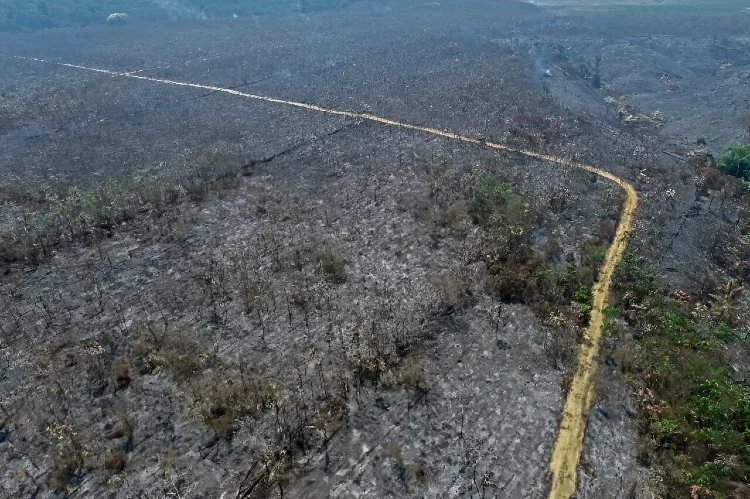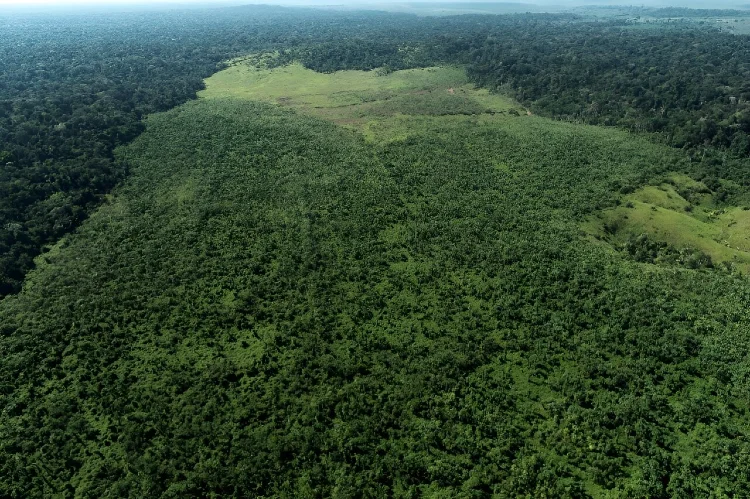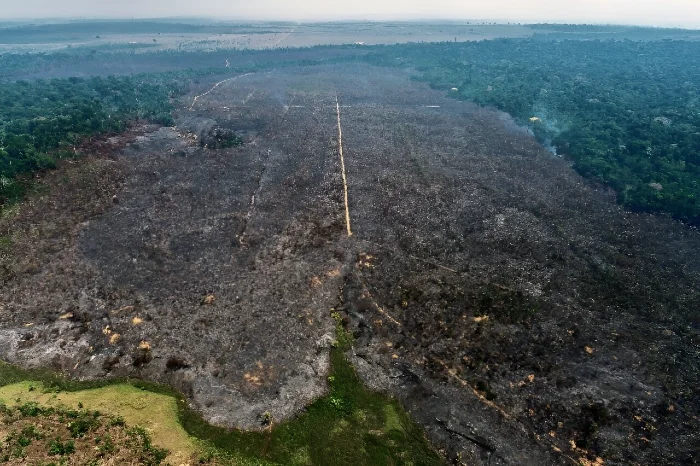A heartbreaking incident unfolded in the Amazon rainforest earlier this month. It’s a story that began with hope and ambition, but ultimately succumbed to the destructive forces of greed and arson.
In 2019, a remarkable reforestation project was launched by the environmental research group Rioterra.
Their mission was to restore a nature reserve in Brazil that had been illegally deforested for cattle ranching. The project aimed to replant 360,000 trees across 667 acres (that’s 270 hectares for our metric-preferring readers) of scorched land, symbolizing a beacon of resilience in the face of climate change.
For years, this corner of the world’s largest rainforest had endured the harsh consequences of reckless human activity. But as the young trees started to flourish, embracing their emerald-green hue, and absorbing an estimated 8,000 tonnes of carbon from the atmosphere, tragedy struck.
The entire project went up in flames, reducing all their hard work to ashes.
The devastating fire, which began on September 3, was later determined to be an act of arson.
A forensic report by the federal environmental agency ICMBio confirmed suspicions that land-grabbers were behind the malicious act.
These individuals sought to reclaim the territory for cattle pasture, disregarding the importance of ecological restoration and the battle against climate change.
Frustrated and feeling waves of despair, Alexis Bastos, the project coordinator for Rioterra, vividly recalled the sinking feeling that consumed him when he witnessed the once-thriving forest reduced to charred remnants.
The restoration effort had been a colossal undertaking, one that held immense significance for both the environment and local communities.
“It was horrible,” he told AFP.
“People have no idea how much work went into restoring that forest. It was a really important, large-scale project.”
The evidence gathered by investigators further substantiated the malicious intent behind the fire.
Satellite images revealed that the fire had spread against the wind, a telltale sign of arson.
Multiple suspects have been identified, and the lead prosecutor on the case, Pablo Hernandez Viscardi, shed light on the underlying motives of these land-grabbers.
“The likely motive was to obstruct the process of ecological restoration in the area.”
Located in the remote southwestern side of the Rio Preto-Jacunda State Nature Reserve, the project faced numerous challenges. Rioterra staff only arrived at the devastated site on September 6, a day after satellite images alerted them to the destruction.
Access roads had been deliberately obstructed, impeding their efforts to assess the damage.

The reforestation project carried a hefty price tag of nearly $1 million but provided invaluable employment opportunities for over 100 individuals. Beyond its environmental impact, the initiative aimed to create a sustainable source of income for local residents through the cultivation of acai palms, renowned for their nutritional and antioxidant properties.
However, not everyone welcomed this ambitious endeavor.
The region was home to a powerful ranching industry that thrived on illegal deforestation for cattle pasture. The boundaries of the Rio Preto-Jacunda reserve were often violated, and the encroachment of ranches with a history of environmental crimes was undeniable.
The destruction of protected rainforest for profit had become an illicit yet profitable business in Brazil, the leading exporter of beef worldwide.
The crime of deforestation frequently targeted remote and hard-to-monitor nature reserves, intertwining with a web of organized criminal activities that ravage the Amazon, including illegal logging and gold mining.
Satellite images captured the stark contrast between the reserve’s lush jungle and the barren, razed land that encroached upon its boundaries.

Tragically, the dedication of Rioterra staff to restore this precious ecosystem was met with hostility. Threats of violence became a constant presence, with individuals associated with the project facing death threats.
Bastos recounted a harrowing incident in which one of their collaborators was ambushed and held at gunpoint. The perpetrators delivered a chilling message, warning them to abandon their restoration efforts or face dire consequences.
“One time the guys ambushed one of our collaborators and put a gun to his head. They said, ‘Look, this is a message. But if you keep trying to recover this area, it won’t be just a message next time.'”
As I delved deeper into the story, I learned that Rondonia, the state in which the project was based, grappled with a surge in environmental crimes perpetrated by a mafia-like network of land-grabbers.
These individuals employed hired guns and guerrilla tactics to seize control of valuable territories. Viscardi, the prosecutor, believed that the same modus operandi was at play in the Rio Preto-Jacunda reserve.
Nevertheless, despite the immense setback, Bastos remained resolute. He refuses to let the land grabbers believe that their actions were acceptable or that they’re more powerful than the State. He emphasized the importance of collective action, urging society to unite and put an end to these destructive practices.
More To Discover
- Germany Invests $8 Billion to Rescue Key Green Energy Firm Amid Energy Transition
- U.S. Launches First Car-Ready E-Fuel With 1 Billion Liters in Production
- Panasonic’s Innovative Semi-Transparent Perovskite Solar Panels Look Like Windows or Walls
- Western Fusion Visionaries Gather in D.C. Amid Growing Competition with China

The images of a once-thriving forest reduced to ashes are haunting. They serve as a poignant reminder of the delicate balance between human progress and environmental preservation. We must come together, not just as individuals, but as a society, to protect the irreplaceable wonders of our world. The fight against greed and destruction is a battle that we can’t afford to lose.
Bastos has vowed to start again, from nothing.
“We as a society have to stop this,” he said.



















